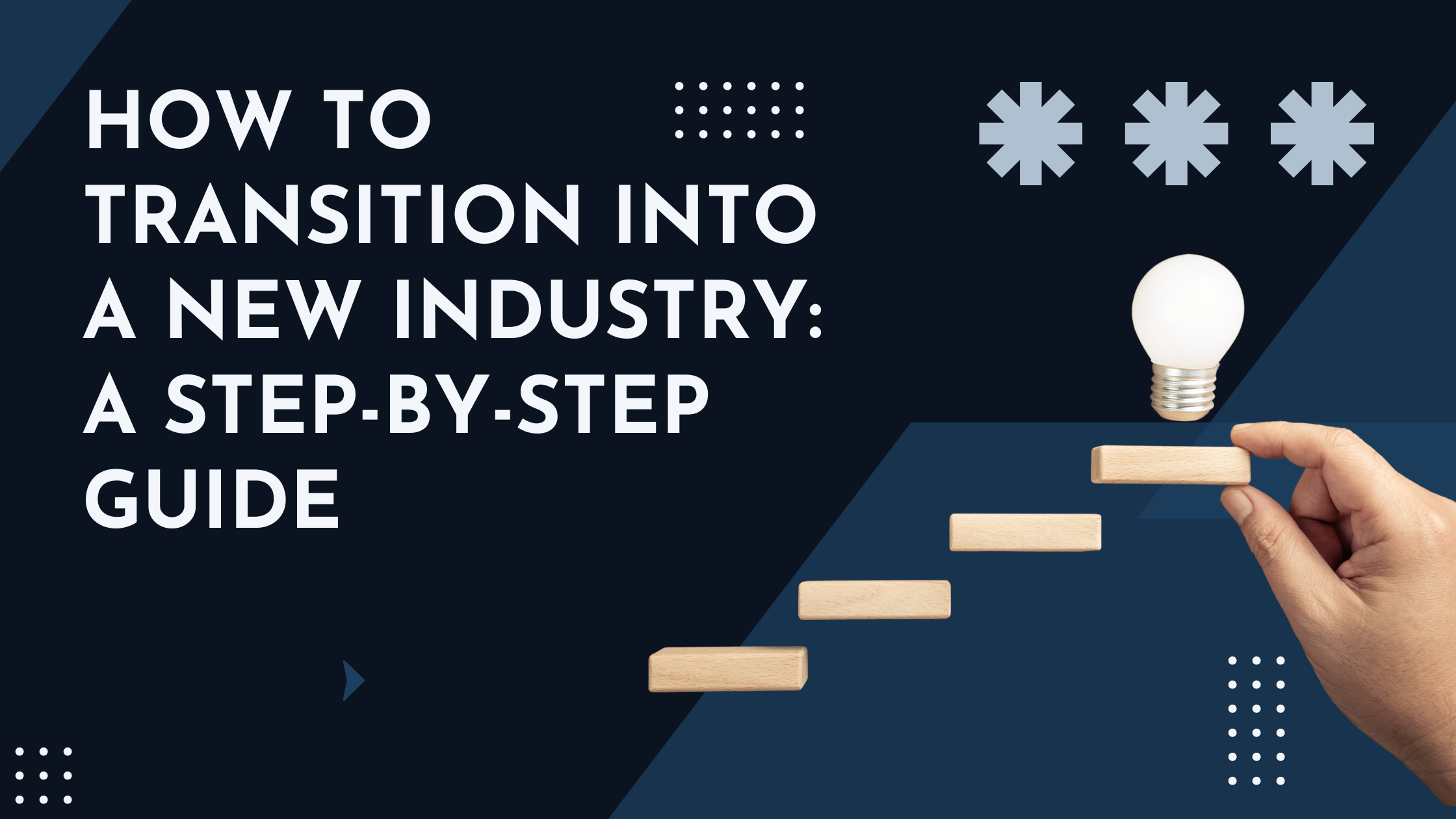
Transitioning into a new industry can be both exciting and daunting. It promises the allure of fresh challenges and opportunities, yet also presents the unfamiliar and the unknown. But with the right approach and mindset, changing industries can be a rewarding journey. Here’s a step-by-step guide to help you navigate this path smoothly.
The first step in your transition is thorough research. You need to understand the industry you’re eyeing, from the trends shaping it, its key players, to the skills most in demand. Read industry reports, follow thought leaders on social media, join relevant professional groups, and immerse yourself in industry news. This will not only help you make an informed decision but also demonstrate your commitment and knowledge when you start networking or interviewing.
Next, assess your transferrable skills. Look at the requirements of the roles you’re interested in and identify which of your current skills are relevant. For instance, project management, problem-solving, and communication skills are valuable in most industries. If there are gaps, consider further training or certification to enhance your competency.
Once you’ve equipped yourself with the necessary knowledge and skills, it’s time to revamp your personal branding materials – your CV, cover letter, and LinkedIn profile. Tailor these to highlight your relevant skills and experiences, focusing on outcomes and achievements that demonstrate your suitability, even if they were in a different industry.
Networking is crucial when transitioning industries. Connect with professionals already in the field to gain insights and potentially, job referrals. Attend industry events, participate in online forums, and leverage platforms like LinkedIn to build connections. Remember, genuine relationships are based on mutual exchange, so think about how you can offer value in return.
An internship, part-time job, or volunteering can provide hands-on experience, making you more attractive to potential employers. It may mean a short-term sacrifice, but it could prove invaluable in gaining industry-specific skills and expanding your professional network.
Before you dive in, test the waters. If possible, collaborate on a project related to the new industry, take on a relevant freelance assignment, or even conduct informational interviews with industry professionals. This will give you a taste of what to expect and whether the new industry aligns with your expectations and career goals.
As you apply for jobs, be prepared to start a rung or two lower on the ladder than your current position. It’s a common part of changing industries. Remember, your goal is to get your foot in the door. Once you’re in, your talent and experience can help you move up quickly.
Finally, embrace a learning mindset. Transitioning into a new industry is a journey full of learning opportunities. Be open to acquiring new knowledge, adapt to new environments, and continually seek feedback to improve.
While transitioning into a new industry can be challenging, it’s also an opportunity to reinvigorate your career, learn new things, and broaden your professional horizon. With the right preparation, a positive mindset, and resilience, you can successfully navigate this exciting career shift. Remember, it’s your unique career path; there’s no right or wrong turn, just the turn that’s right for you. Good luck with your transition!







